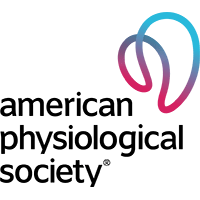 American Physiological Society (APS) is a nonprofit association devoted to fostering education, scientific research, and dissemination of information in the physiological sciences. The Society, founded in 1887, has more than 10,000 members and has education programs addressing issues at each level—precollege, undergraduate, graduate, professional, and continuing education. In addition, the APS is committed to increasing diversity in biological sciences; in 2003, the APS received the Presidential Award for Excellence in Science, Engineering, and Mentoring Programs for its systemic approach to incorporating diversity efforts into its programs.
American Physiological Society (APS) is a nonprofit association devoted to fostering education, scientific research, and dissemination of information in the physiological sciences. The Society, founded in 1887, has more than 10,000 members and has education programs addressing issues at each level—precollege, undergraduate, graduate, professional, and continuing education. In addition, the APS is committed to increasing diversity in biological sciences; in 2003, the APS received the Presidential Award for Excellence in Science, Engineering, and Mentoring Programs for its systemic approach to incorporating diversity efforts into its programs.
The APS accepts submissions through four mechanisms:
PreK-12 Resources (Colleague to colleague sharing): The APS welcomes the submission of PreK-12 classroom activities, demonstrations, images, simulations, lesson plans, interactive activities/programs, etc. All items are peer-reviewed by a team of scientists and educators. Submit these items through LifeSciTRC submission process. For questions, contact LifeSciTRC Coordinator (info@LifeSciTRC.org).
Higher Education Resources (Colleague to colleague sharing): Undergraduate, graduate, and professional school laboratory activities, demonstrations, images, simulations, syllabi, lecture notes, PowerPoints, exams, interactive activities/programs, etc. All items are peer-reviewed by a team of scientists and/or educators in June and December. Submit these items through LifeSciTRC submission process. For questions, contact the APS LifeSciTRC Coordinator (info@LifeSciTRC.org).
Advances in Physiology Education (Peer-reviewed journal): Scholarly articles that enhance teaching and learning of Physiology, Neuroscience, and Pathophysiology, including descriptions of innovations that improve teaching in the classroom and laboratory, essays on education, and review articles based on current understanding of physiological mechanisms, evaluation of new technologies for teaching and research, and educational pedagogy. Items submitted to Advances generally require classroom testing data. All items are peer-reviewed by the editorial board. Submit these items through the journal submission site (www.the-aps.org/mm/Publications/Journals/Advances ). For questions, contact the journal editor, Doug Curran-Everett (EverettD@NJHealth.org).
Web-site recommendations (Colleague to colleague sharing): LifeSciTRC users are encouraged to submit websites that they have found useful to LifeSciTRC for review and inclusion. Submit these items by contacting the APS LifeSciTRC Coordinator (info@LifeSciTRC.org).
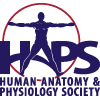 The Human Anatomy and Physiology Society (HAPS) promotes communication among teachers of human anatomy and physiology in high schools, colleges, universities, and related institutions; to present workshops and conferences (regional and national) where members can obtain information about the latest developments in the health and science fields; and to encourage educational research and publication by HAPS members.
The Human Anatomy and Physiology Society (HAPS) promotes communication among teachers of human anatomy and physiology in high schools, colleges, universities, and related institutions; to present workshops and conferences (regional and national) where members can obtain information about the latest developments in the health and science fields; and to encourage educational research and publication by HAPS members.
HAPS now includes over 1,600 members from high schools, two and four year colleges, universities, and private businesses throughout the United States, Canada and the rest of the world.
To only search for HAPS items please go to: http://www.lifescitrc.org/search.cfm?p=HAPS.
Items cataloged by HAPS have been reviewed for scientific accuracy and the appropriate use of humans and/or animals in research.
If you are a HAPS member and have material you would like to contribute to the HAPS portion of LifeSciTRC, please contact Peter English, HAPS Executive Director, at penglish@hapsconnect.org.
Peter English
HAPS Executive Director
penglish@hapsconnect.org
 The Society for Developmental Biology was founded in 1939 (as the Society for the Study of Development and Growth) to bring together the fields of Genetics and Experimental Embryology and to further the study of development in all organisms and at all levels.
The Society for Developmental Biology was founded in 1939 (as the Society for the Study of Development and Growth) to bring together the fields of Genetics and Experimental Embryology and to further the study of development in all organisms and at all levels.
Today, the SDB brings together educators and researchers pioneering the exploding fields of developmental biology, developmental genetics, evolution and development, embryonic stem cell biology, genomics and human disease including birth defects and cancer. The SDB fosters the growth and development of its membership and seeks to educate the public on the importance and potential of developmental biology in science and society.
To only search for SDB items please go to: http://www.lifescitrc.org/search.cfm?p=SDB.
SDB accepts teaching and learning resources that focus on developmental biology or similar topics (embryology, stem cell biology, evo-devo, etc.). Resources may be submitted for any learning level (K-12, Undergraduate, Graduate and Professional, Continuing Education, General Public).
Resources are peer reviewed by at least two experts in the field of developmental biology or related subjects. Most reviewers are members of the Society for Developmental Biology or another international Developmental Biology society. For more information about submitting an object to the SDB portion of the Life Sciences Teaching and Learning Resources (LifeSciTRC), please contact Randy Daughters, SDB Archive Editor (daugh005@umn.edu), or Jason Meyers, Deputy Archive Editor (jmeyers@colgate.edu).
Ida Chow
SDB Executive Director
ichow@sdbonline.org
Jason Meyers
SDB Archive Editor
jmeyers@colgate.edu
Randy S. Daughters
SDB Deputy Archive Editor
rdaugter@macalester.edu
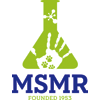 The Massachusetts Society for Medical Research (MSMR) is a non-profit member organization representing biomedical research at universities, hospitals, biotechnology and pharmaceutical firms, and others that ethically use animal models directly or indirectly in their research and testing. Our members also include organizations and companies that support biomedical research.
The Massachusetts Society for Medical Research (MSMR) is a non-profit member organization representing biomedical research at universities, hospitals, biotechnology and pharmaceutical firms, and others that ethically use animal models directly or indirectly in their research and testing. Our members also include organizations and companies that support biomedical research.
We help our members deal with issues of public perception, education, legislation, communications, outreach, and professional development training relevant to animal use. MSMR is pro-active with the media, students and teachers, and most especially with the members themselves. We run well-regarded workshops on topics ranging from media communications to ethics, from security for research operations to harmonization of IACUCs and IBCs.
We offer educational materials and experiences for students and teachers K–14, including information about biomedical research with animals, classroom speakers, career day presenters and on-line information. We also produce the website What A Year!, devoted to bringing the latest biomedical breakthroughs to students and teachers in grades 7–12; and each year we conduct our student competition in which grade 7–12 students anywhere in New England may submit an essay, poster or website on a recent research development of their choice.
To only search for MSMR items please go to: http://www.lifescitrc.org/search.cfm?p=MSMR.
MSMR is currently not accepting external submissions. Items cataloged by MSMR have been reviewed for scientific accuracy and the appropriate use of humans and/or animals in research.
Alan B. Dittrich, PhD
MSMR Executive Director
a.dittrich@msmr.org
 The Northwest Association for Biomedical Research (NWABR) is a non-profit educational organization established in 1988 to promote the public's trust in biomedical research and its ethical conduct.
The Northwest Association for Biomedical Research (NWABR) is a non-profit educational organization established in 1988 to promote the public's trust in biomedical research and its ethical conduct.
Our work centers on supporting excellence in science teaching, building connections between scientists, students and the wider community, and also working to strengthening the research community.
To only search for NWABR items please go to: http://www.lifescitrc.org/search.cfm?p=NWABR.
We currently accept teaching, student and general public resources from NWABR program participants focusing on bioethics, bioinformatics, and other topics related to biomedical research such as pharmacogenetics, stem cells, and HIV. Items cataloged by NWABR have been reviewed for scientific accuracy and the appropriate use of humans and/or animals in research.
If you have material you would like to contribute to the NWABR portion of LifeSciTRC, please contact Ken Gordon, Executive Director at NWABR@physiology.org.
Ken Gordon
Executive Director
NWABR@physiology.org
 The Physiological Society, founded in 1876, is a learned society based in the UK, with over 3000 Members from over 60 countries. The Physiological Society supports scientific research through its grants schemes, conferences and its three journals (each offering open-access publishing).
The Physiological Society, founded in 1876, is a learned society based in the UK, with over 3000 Members from over 60 countries. The Physiological Society supports scientific research through its grants schemes, conferences and its three journals (each offering open-access publishing).
The majority of our members are engaged in research, but we also have a growing number of undergraduate members studying for a physiology or related degree, and an excellent network of school teachers. The Society plays an important role in supporting the teaching of physiology to both undergraduates and school students; through building resources, providing funding, promoting best practice and recognising the best teachers.
The Society also works with its Members and experts in science communication to ensure that physiology and the latest research is accessible by the public.
The Physiological Society has an active policy department through which we seek to identify and act upon issues that are of importance to our Members and to physiology as a discipline, whilst raising the profile of physiology within the UK government.
Websites: http://www.physoc.org and http://www.understanding-life.org
For further information, please contact: highereducation@physoc.org.
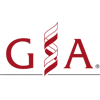
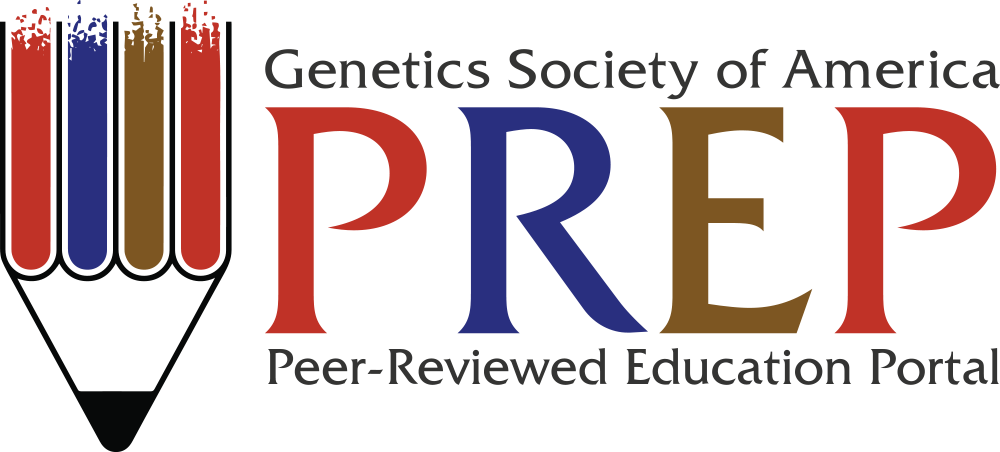 Founded in 1931, the GSA is the professional scientific society for genetics researchers and educators. Its more than 5,000 members worldwide work to deepen our understanding of the living world by advancing the field of genetics, from the molecular to the population level. GSA promotes research and fosters communication among geneticists through a number of GSA-sponsored conferences including regular meetings that focus on particular model organisms. GSA publishes two peer-reviewed, peer-edited scholarly journals: GENETICS, a leading journal for seminal research across the breadth of the field since 1916, and G3: Genes|Genomes|Genetics, an open-access journal launched in 2011 to disseminate high quality foundational research in genetics and genomics.
Founded in 1931, the GSA is the professional scientific society for genetics researchers and educators. Its more than 5,000 members worldwide work to deepen our understanding of the living world by advancing the field of genetics, from the molecular to the population level. GSA promotes research and fosters communication among geneticists through a number of GSA-sponsored conferences including regular meetings that focus on particular model organisms. GSA publishes two peer-reviewed, peer-edited scholarly journals: GENETICS, a leading journal for seminal research across the breadth of the field since 1916, and G3: Genes|Genomes|Genetics, an open-access journal launched in 2011 to disseminate high quality foundational research in genetics and genomics.
Launched in 2012, GSA's Peer-Reviewed Education resource Portal (GSA PREP) is an online publication featuring peer-reviewed educational resources designed for immediate use in the classroom. GSA PREP is designed to publish resources that educators can use immediately or modify for their own classes. GSA PREP is not an outlet for education research and does not require assessment data, though if it is available it is appreciated. PREP resources promote the principles of inquiry-based, student-centered learning in Vision and Change in Undergraduate Biology Education.
GSA PREP Submission and Review Process
GSA PREP is currently accepting In-Class/Lecture Exercises, Laboratory Exercises, Laboratory Protocols, Images/Animations as well as full lab or lecture courses via the GSA PREP website. Resources are subject to peer-review using specific rubrics. Resources must include a Resource Justification along with the other materials needed for a complete submission.
To submit a resource, visit http://www.genetics-gsa.org/education/GSAPREP_authorreviewer.shtml
Once an original resource is published it will be assigned a unique Digital Object Identifier (DOI), as with other online publications.
GSA PREP also catalogues other useful resources published in other outlets like CourseSource; this will be clearly marked on the resource web page.
Beth Ruedi
GSA Director of Education
eruedi@genetics-gsa.org
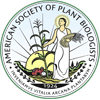 ASPB is a professional society devoted to the advancement of the plant sciences. It publishes two world-class journals and organizes conferences and other activities that are key to the advancement of the science, including cellular and molecular biology, genetics, development, evolution, physiology and biochemistry.
ASPB is a professional society devoted to the advancement of the plant sciences. It publishes two world-class journals and organizes conferences and other activities that are key to the advancement of the science, including cellular and molecular biology, genetics, development, evolution, physiology and biochemistry.
The Society works through its Education Committee to provide resources that promote the teaching and learning of science using plants and encourage plant biology as a career choice. ASPB offers this Statement on the Importance of Participation of Scientists in K-12 Science Education. ASPB is active in the Vision and Change in Undergraduate Biology Education movement and supports the Next Generation Science Standards.
ASPB is currently accepting submissions via the LifeSciTRC from the following categories:
PreK-12 classroom activities, demonstrations, images, simulations, lesson plans, interactive activities/programs, etc. All items should reflect scientific teaching principles, content, and competencies such as those stipulated by the Next Generation Science Standards (www.nextgenscience.org). A reflection of the 12 principles of plant biology (www.aspb.org/12principles) also will be of benefit.
Higher Education resources for undergraduate, graduate, and professional school settings, including community colleges, PUIs and R1 campuses. These can include laboratory activities, demonstrations, images, simulations, mentoring models, and interactive/flipped classroom style programs. Syllabi, lecture notes, PowerPoints, exams, etc. also are welcome as long as they incorporate or coordinate with inquiry-oriented learning. All items should reflect scientific teaching principles, content, and competencies such as those stipulated by Vision and Change (www.visionandchange.org). A reflection of the Core Concepts in Plant Biology (www.aspb.org/PlantBioCoreConcepts) also will be of benefit.
Outreach & Engagement activities, programs, conversation-starting slide sets, workshop/retreat models, video clips, crowdsource programs etc. for audiences not typically in K-12 or Higher Education classrooms. This includes young children, citizen scientists, social and general media, non-science majors, and campus administrators. These resources should convey key elements of plant science or biology education at levels of interest and detail suitable for the intended audience. An underlying goal should be to 'eradicate plant blindness' so that users can see that plants are not optional, they are everywhere (food, fibers, fuel, pharmaceuticals).
All resources cataloged by ASPB are reviewed using these criteria.
Katie Engen
ASPB Education Coordinator
katie@aspb.org
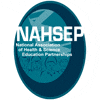 NAHSEP promotes and facilitates the dissemination of innovative approaches to K-12 health science education through partnerships among academic institutions, museums, industries, foundations, and governmental and community agencies.
NAHSEP promotes and facilitates the dissemination of innovative approaches to K-12 health science education through partnerships among academic institutions, museums, industries, foundations, and governmental and community agencies.
Its goals are to promote the fiscal support of K-12 health science education in the U.S., serve as a repository for data and impact of successful health science education programs, and disseminate curricular ideas and partnership models.
To only search for NAHSEP items please go to: http://www.lifescitrc.org/search.cfm?p=NAHSEP.
NAHSEP is currently not accepting external submissions and is an inactive LifeSciTRC partner. Items cataloged by NAHSEP have been reviewed for scientific accuracy and the appropriate use of humans and/or animals in research.
NAHSEP resources were contributed by NIH Science Education Partnership Award (SEPA) programs.
See https://www.ncrrsepa.org.
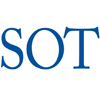 The Society of Toxicology (SOT) mission is to create a safer and healthier world by advancing the science and increasing the impact of toxicology. Toxicology is the study of the adverse effects of chemical, physical, or biological agents on living organisms and the ecosystem, including the prevention and amelioration of such adverse effects. Founded in 1961, SOT is a professional and scholarly organization of scientists from academic institutions, government, and industry representing the great variety of scientists who practice toxicology in the US and abroad. SOT is committed to diversity and inclusiveness in all of its activities. The Society has more than 7,800 members from 60+ countries dedicated to enhancing human, animal, and environmental health.
The Society of Toxicology (SOT) mission is to create a safer and healthier world by advancing the science and increasing the impact of toxicology. Toxicology is the study of the adverse effects of chemical, physical, or biological agents on living organisms and the ecosystem, including the prevention and amelioration of such adverse effects. Founded in 1961, SOT is a professional and scholarly organization of scientists from academic institutions, government, and industry representing the great variety of scientists who practice toxicology in the US and abroad. SOT is committed to diversity and inclusiveness in all of its activities. The Society has more than 7,800 members from 60+ countries dedicated to enhancing human, animal, and environmental health.
To only search for SOT items please go to: http://www.lifescitrc.org/search.cfm?p=SOT.
Materials related to the teaching of undergraduate toxicology—for example, syllabi, lecture slides, presentations, lab activities, assignments, assessment methodology—can be submitted for the SOT Undergraduate Toxicology Resource Collection. The person submitting the resource will provide SOT license for use and no materials that are copyright protected will be included without the permission of the copyright holder (or use of a direct link to the material provided by the copyright holder). Materials submitted will be reviewed by at least two toxicologists to confirm copyright status and that the materials are related to toxicology, demonstrate quality, are scientifically accurate, provide adequate and safe information for others to use, and meet SOT guidelines for ethical conduct and humane treatment of animals and research subjects.
Betty Eidemiller
Director of Education
bettye@toxicology.org